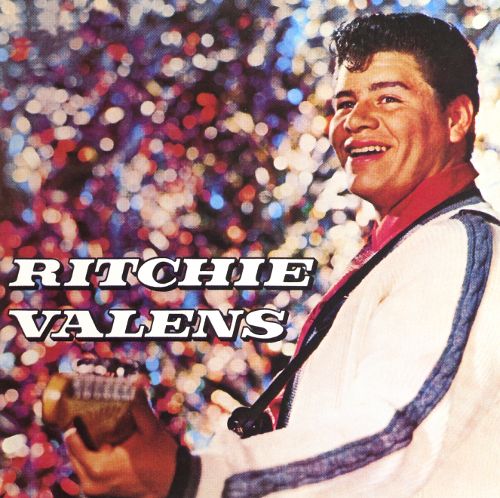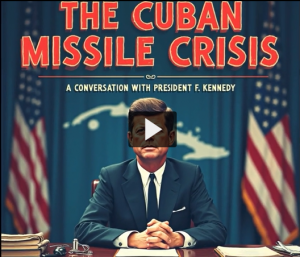It is the late 1950’s in southern California, and a young superstar named Ritchie Valens, whether he knows it or not, is about to change the culture of America forever. In a matter of eight months, the Hispanic student at San Fernando High School just became one of the biggest celebrity musicians of the day.1 After dropping out of school in order to record and tour full time, Richard Valenzuela was making phenomenal Rock N’ Roll music, both on stage and in the studio. While America quickly became obsessed with the undeniably talented teen, nothing could prepare them for his next release.
From the beginning, the odds were against young Richard. He was merely sixteen, and, as a young Latino, there were few opportunities for someone like him in the American mainstream music industry, let alone in Rock ’n Roll. He saw proof of this fact early in his career, facing prejudice and discrimination at every turn. He was even forced to change his name to Ritchie Valens in order to make it easier for his fans to pronounce—a compromise that gave way to controversy and anger from his family.2 Ritchie realized that, even though he was opposed to the changing of his name, it would be a smart move for him as a musician. But even after his family name was taken from him, he refused to let go of his heritage. In fact, it seemed that he tightened his grip.
Ritchie wanted to do something to pay tribute to his Latino culture. With the assistance of Bob Keane of Del-Fi Records, he decided he would combine the two worlds that he was now so heavily a part of, by turning the Spanish tune “La Bamba” into an upbeat rock song. Only knowing English, Ritchie had to learn the lyrics of the traditional Mexican folk song phonetically. After countless takes in the studio, he recorded the song on a two-track record with a second soon-to-be hit Oh, Donna.3
Ritchie released the track and promptly shook up America. Most people had no idea what the song was about, but, for one of the first times in modern music history, they didn’t care. The charismatic rhythm of the song combined with Ritchie’s unique voice; it was impossible to dislike it, and the song spread like wildfire, taking his career to new heights.
Seeing Ritchie perform was a spectacle only few Americans were graced with. His energy and impeccable guitar skills would engage the thousands of audience members from start to finish.4 While the crowd was swooning over every single song, there was nothing like that epic guitar riff that carries the tune of La Bamba.3 As soon as Ritchie’s guitar pick hit his strings, the fans simply could not contain themselves.

Unfortunately, Richard Valenzuela’s career was ended even quicker than it begun. Soon after his explosive rise to fame was sparked, and before he could finish his tour, Ritchie Valens was killed in a plane crash along with fellow artists Buddy Holly and The Big Bopper J.P. Richardson.6 The tragedy triggered nation-wide shock, and the day became known by many as “The Day The Music Died.”7
Although his life was ended much too early, perhaps it was this terrible fate that immortalized him in music history. His music and the rest of Valens’ amazing life inspired the film La Bamba, a timeless and classic film. Ritchie’s brave move in the release of “La bamba” inspired and enabled many other Hispanic artists to begin to make their way into the spotlight, making it much more than just a great song. We see the repercussions still today, through modern Latin Rock bands and all the sub-genres surrounding them, and will without a doubt continue to experience the fruits of the song for decades to come. Needless to say, American music and culture would not be the same without Richard Valenzuela’s audacious contributions.
- Encyclopedia of World Biography, 2004, s.v. “Ritchie Valens.” ↵
- Salem Press Biographical Encyclopedia, January 2017, s.v. “Ritchie Valens,” by Scot M. Guenter. ↵
- “‘La Bamba’ one of the 100 most important American musical works of the 20th century,” Broadcast Transcript. Weekend All Things Considered, NPR, July 15, 2000. ↵
- St. James Encyclopedia of Popular Culture, 2nd ed. “Valens, Ritchie (1941–1959),” Candida Taylor. ↵
- “‘La Bamba’ one of the 100 most important American musical works of the 20th century,” Broadcast Transcript. Weekend All Things Considered, NPR, July 15, 2000. ↵
- Robert Wright, “The Day The Music Died,” Aviation Safety, July 1, 2015. ↵
- “What Went Wrong On The Day Music Died?” Interview by Robert Siegel, Melissa Block, All Things Considered, NPR, February 3, 2009. ↵



163 comments
Gabrien Gregory
Ritchie Valens’ story is a very sad one, but significant for the Latino and all Americans. I think his story brings to light what young Americans of all backgorunds can accomplish regardless of age or prospects. I have always been a fan of the story and the music, even as a young white man in the United States. He is truly a pioneer in history. This is a well-written article and a good topic choice.
Esperanza Rojas
It saddens me the he was forced to change his name just so people can pronounce it but was proud that he stuck to his heritage and culture and wanted to display that through his music. La Bamba is a song that comes on the radio and everyone knows who it’s by and wants to dance. It’s extremely sad that he passed so young because he could’ve done so much more.
Nathalie Herrera
Reading the story of Ritchie Valens and his impact to the music culture is fascinating. Although he faced discrimination, which impacted him greatly, resulting in changing his name to “Ritchie Valens” in order for others to have an easier time pronouncing it. Despite this, he still held onto his heritage on a tight grip. His contribution to the music culture will forever have an impact and others around the world. Great read!
Reagan Meuret
This article is very cool as La Bamba is a very iconic song. It is also interesting to me that it was written by such a young man, as to me it always sounded like a older man. It is just sad that his career was cut short for such a tragic reason, as I’m sure his career was going to flourish and he could’ve been one of the better Hispanic artists we’ve seen.
Mariah Garcia
RITCHIE, NOT MY RITCHIE!! Ritchie Valens and his music has had a profound influence on my life, from his simple, yet touching lyrics to his distinct pride in his culture, Ritchie Valens has been a significant influence in my life. As a young Latinx individual, I take pride in the contributions of Valens, and have always found his untimely death to be a tragic event not only in music history but in Chicano history as well. La Bamba, and all its legacy, will continue to live on within La Raza, La Cultura, and within the many communities that Valens reached with his music.
Maggie Amador
I believe it was Ritchie Valens who refused to ride on planes because of his nightmare that he’d die due to a plane crash. So it’s ironic that he met his fate this way. A lot of talent was lost on that day, and it still holds a lot of importance being that you can hear many artist reference the day the music died in their songs. I love that although Ritchie’s identity was slightly stripped away as the industry changed his name, he stayed true to his Hispanic roots and paid tribute to his culture through his music.
Maxx Arizmendi
I never heard of this song before, but reading this article makes me want to look up the song on YouTube and listen to it. I love the way the author of this article showed the fact that this song was hated by older people but the younger generation loved it, which made it interesting. I also liked how the article talked about the music career, which was enjoyable to read about.
Luis Magana
This has been a very popular song known by a lot of people, what I didn’t know is that a young Hispanic had composed the song. Being of Hispanic blood and culture it feels good knowing that a young hispanic was able to compose something that would be known by many people. I know latinos have always faced a lot of discrimination and racism but they are still able to accomplish so many things. Im glad I was able to be more informed on the story of a song I sang constantly with my parents.
Madison Downing
You did an amazing job targeting one point of Richard Valenzuela’s life and explaining how why it was so important for to people to notice it. I knew of the song “La Bamba” but I never really paid attention to the name “Ritchie Valens” and what he story could have been. It truly broke my heart that he died only at the age of 17 in a plane crash with artist Buddy Holly. It was so difficult for Richard to do the things he did because Latino music just wasn’t popular and no one dreamed of incorporating it into Rock N Roll. He even gave up his name so that he could rise in the music industry. I personally typed the name into Google Richard Valenzuela and he didn’t pop up, I only found him when I searched Ritchie Valens. He gave up his family identity to do the things he done and like you said he will now be forever immortalized in the music industry. Amazing job and well done!
Pedro Gonzalez Aboyte
La Bamba is just one of those songs that everyone recognizes. I am very familiar with this song as well as Ritchie Valens because I used to listen to this music. Whenever I would go to parties or attend an event, La Bamba was a must-play song. It is truly amazing what Ritchie accomplished and how he did it. He faced racism and discrimination but that never made him give up. He kept trying to find a way to keep his dream alive and he did just that. It is sad to know that this musician died young but his music lives on and will always be remembered.